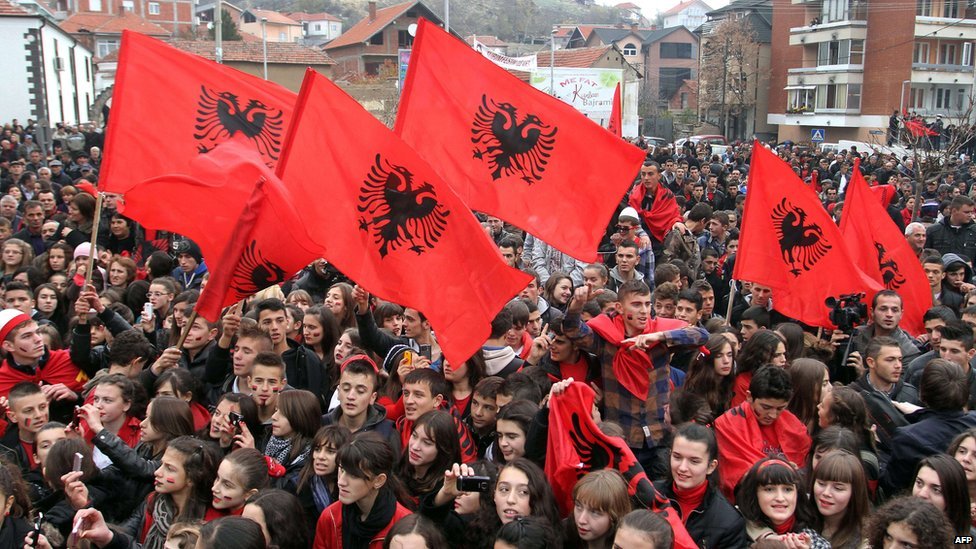John Bethell | Contributing Writer
Albania is a country about which the vast majority of Westerners know very little. Its reputation across the world suffered under the brutal leadership of Communist leader Enver Hoxha. His governance was politically characterised by violent suppression of opposition, with frequent use of the death penalty or long prison terms for his opponents via use of the secret police, Sigurimi, as well as many Stalinist methods.
Hoxha’s dictatorship is the reason that little is known about Albania as for decades this poorest of European countries was totally isolated and contact with the outside world banned. His methods were Stalinist, and during his period Albania was industrialised, undergoing a stage of rapid economic growth such that by 1970 Albania was the only country in the world that did not impose tax on its people. At the same time, the country’s tiny GDP went into the construction of approximately 750,000 small concrete bunkers, which today remain a visible symbol of the ludicrous and tragic Hoxha political construct,which relied on prison camps and paranoia to subdue a people noted for their quick wittedness.
Its fascinating history of consecutive occupations and brave struggles for freedom intrigued Byron and Edward Lear
For some it is a wild, romantic land; a picturesque part of the European land mass defined by the mountains of the North and East and the unspoilt Ionian coast bordering Greece. Its fascinating history of consecutive occupations and brave struggles for freedom intrigued Byron and Edward Lear, who visited when it was under the Ottoman boot.
Post-Communism, it has a world-class tradition of religious tolerance. The majority follow an enlightened Bektashi form of Islam and co-exist very happily with the Orthodox and Catholic minorities. Mixed marriages are frequent and it is customary to worship in both church and mosque. Moreover Albanians saved many fugitive Jews during WW2 and are well represented in the Jerusalem monuments recording this.
After a bloody Second World War, when the Albanian resistance fighters tied down many Italian/German divisions, the Communists seized power and strengthened their grip thanks to the treachery of the British spy Kim Philby. The warlord King Zog fled with the contents of the Albanian treasury, while his son Prince Leka lived in exile surrounded by loyal courtiers and today his son, Crown Prince Leka, lives in Tirana. The Crown Prince is popular and hard working: he served in the Albanian army after winning the prize for most improved cadet at Sandhurst.
Berisha’s election turned the country into a liberalised economy, and this meant the rudimentary new financial system was prone to such economic catastrophes as Ponzi schemes
Democracy came after the fall of the Berlin Wall and the first democratic Prime Minister, Sali Berisha, cut a fine figure in European politics. A brilliant orator and top cardiologist, he rose to the challenge of governing a country in which democratic pluralism led to a proliferation of almost 40 political parties and weak coalitions. Corruption still remains a problem today, as it does in much of Eastern Europe, and it led to a total government collapse in 1997, followed by the “Pyramid Crisis,” a full-blown rebellion sparked by Ponzi scheme failures. After years under a controlled economy, Berisha’s election turned the country into a liberalised economy, and this meant the rudimentary new financial system was prone to such economic catastrophes as Ponzi schemes. Some 2000 people lost their lives in the rebellion, and the Albanian people lost a total of $1.2 billion dollars. Nevertheless, Berisha’s election marked a shift towards a new, stable parliamentary democracy, one which he would lead for longer than any other democratically elected leader.
Berisha worked hard on improving the country’s infrastructure and the long, slow process of Albania’s application to join the EU. But having dominated Albanian politics for over two decades, he lost power in democratic elections in June last year: the fact that he came to power in the same way underscores his place in Albanian history after centuries of imperial occupation followed by the modern horror of totalitarianism.
His replacement as Prime Minister is also a towering character, described by one seasoned observer of Albanian politics as a modern-day “El Cid.” Edi Rama was a high profile Mayor of Tirana, where his reign left a highly visible legacy. An artist and the son of Enver Hoxha’s favoured sculptor, he was responsible for painting Tirana’s grimmer concrete buildings in bright colours. Detractors comment that concentration of resources on the weak electricity and water infrastructure would have been more to the point. But Rama won a big mandate and has made efforts to boost investor confidence and progress the EU membership application, advised by the ubiquitous former PM Tony Blair and his spin doctor Alastair Campbell. However, the EU Commissioner responsible for enlargement recently issued a rather impatient statement asking for more progress on the fight against organized crime and the issue of police reform: Rama has been accused of sacking many career policemen and substituting Socialist Party activists.
A bipartisan approach is alien to their polarized politics.
Having attended his conference in Oxford, like his equally charismatic predecessor, Rama is an impressive media performer. Difficult questions are batted away with skilful jokes and he performs well in English, his third language. He is an imposing figure: a former member of the national basketball team, he stands over two metres tall. And he is keen to implement a New Labour style project in Albania. But relations with the opposition are toxic and co-operation needs to improve, as the EU has made clear. Few Albanians express anything other than enthusiasm for embracing a European destiny. A bipartisan approach is alien to their polarized politics. Can the country come together and move inside the European big tent? Or will rejection push them closer to their Muslim friends in the Gulf, as happened in Turkey when EU membership was blocked by the Greeks?







